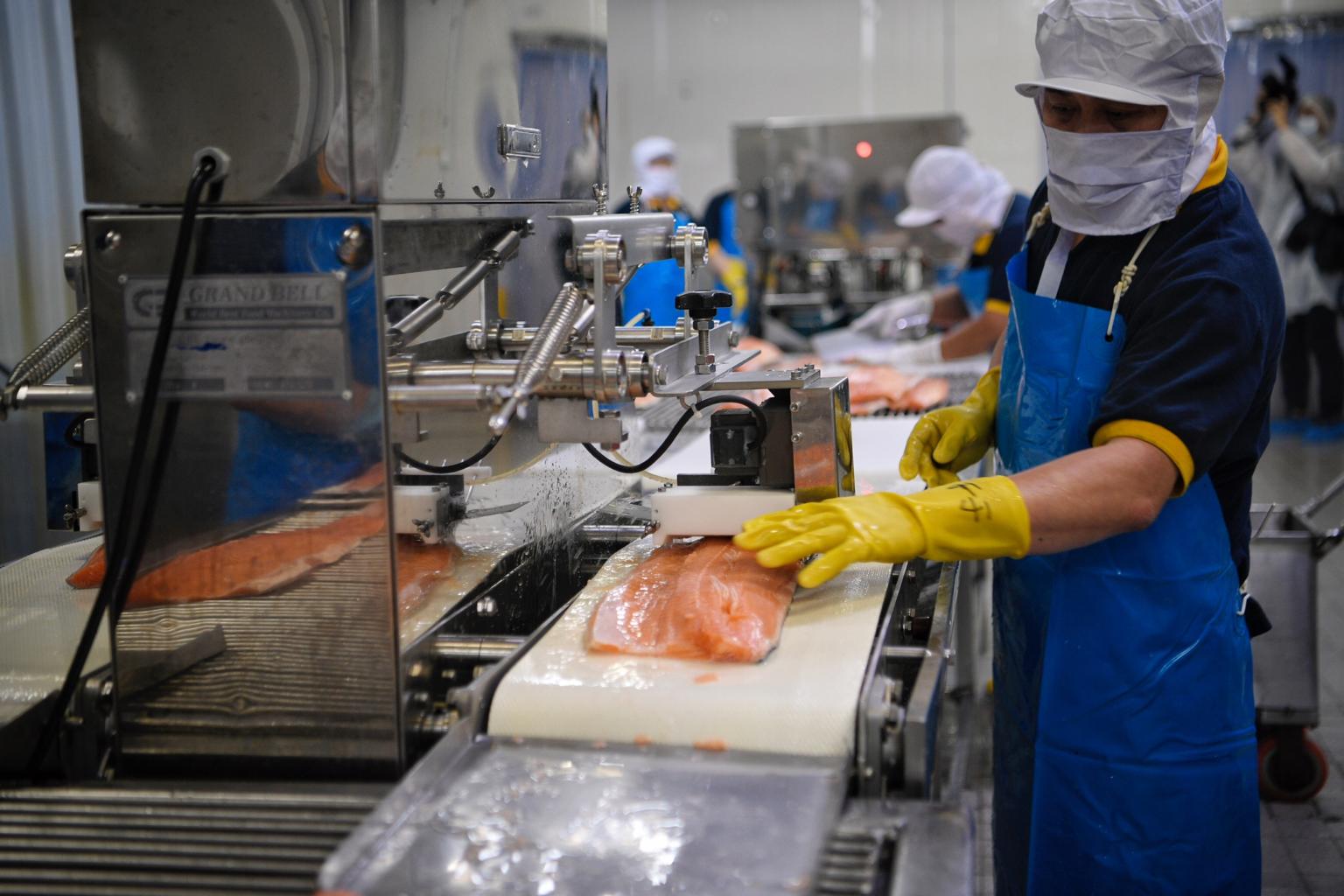Singapore wholesalers turning tech-savvy in expanding online and regional market
Sign up now: Get ST's newsletters delivered to your inbox

A worker at Song Fish passing a fish fillet through a deboning machine.
ST PHOTO: MARK CHEONG
SINGAPORE - All it took was 10 minutes for business development manager Abbie Chen to send in her order online for threadfin and salmon, and a day for it to reach her doorstep.
This is the first Chinese New Year that the expectant mother did not include wet markets in her eleventh hour stock up for reunion meals. Instead, she opted for a home delivery from wholesale trader Song Fish.
"It definitely saves a lot more time and it's safer than walking through wet markets," said the 32-year-old.
But unknown to her is a well-oiled process involving wholesalers to get her purchases from farm to table.
To benefit more consumers like Ms Chen, as well as retailers, the government is stepping in with the Wholesale Trade Industry Transformation Map (ITM) launched last September that aims to help Singapore wholesalers in expanding their local and overseas trading links.
International Enterprise Singapore - which is merging with Spring Singapore to form the new Enterprise Singapore agency - is at the helm of the ITM, which will also aim to help wholesalers like Song Fish to tap on technology to cope better with peak business periods like Chinese New Year festivities.
Initiatives like these are already in motion at Song Fish, which bought two filleting machines and a descaling machine last September.
On a recent visit to the company's factory located at Fishery Port Road, The Straits Times saw how the US$250,000 (S$332,635) investment saves on manpower.
For instance, a filleting machine makes quick work of 30 to 40 fish in one minute, compared to how a skilled worker takes about a minute to handle a fish.
"That's at least three fewer workers in the production line," said sales manager Shawn Lim, 42.
He added that the workers were re-deployed to do other tasks, such as repacking goods.
With the Capability Development Grant from Spring Singapore - which defrays training and equipment costs of up to 70 per cent - Song Fish only had to fork out US$75,000 for the three machines.
This helps them shave off costs while raising output by 20 per cent, hence curbing the price spike for customers during peak periods.
Other initiatives include a $10,000 revamp of its online store by this year, where end-consumers like Ms Chen place their orders.
Compared to its first iteration in 2008, which drew several thousand dollars a month, Song Fish's online store now sees a marked increase to about $100,000 monthly.
"But people still prefer to shop offline or call up the factory to order," said Mr Lim.
A work day begins around 3am when the Song Fish team picks their wares at the Jurong Fishery Port and ends before 9.30am when the stocks leave after being descaled, filleted, deboned and packed.
Another wholesale trader, Candy Floriculture, is also tapping on technology to expand its business.
It is working with a partner, with help from IE Singapore, to set up a business-to-business platform.
The portal aims to "Uberise" the agricultural produce market by better matching suppliers to retailers, such as florist shops and supermarkets.
It will charge sellers who wish to list their products a two per cent fee, but will be free to use for buyers. Candy Floriculture will act as an agent between both parties.
"It will be like Uber, Grab - they're just platforms... for the ones who own vehicles and the ones who want to use the service," said marketing director Edwin Tan, 62.
The platform will be rolled out overseas by this year to tap on larger markets before its launch in Singapore.
"The market isn't restricted to Singapore anymore... We have customers in many countries like Brunei, Indonesia, Sri Lanka - they can come to this platform," said owner Sharon Goh, 58.


